Executive
Texas, power, and bad money
The Texas Nationalist Movement weighs in again with a better argument that federal subsidies for wind power set Texas up to suffer during the Deep Freeze.

Recall that CNAV, shortly after the Texas Deep Freeze, offered this opinion on why Texas had such a problem. Specifically, Texas lost much of its power generating capacity, and many Texans lost their lives. Now Dan Miller, head of the Texas Nationalist Movement, offers a better explanation than he did before, on why Texas had a power problem. He identifies subsidies for “renewable” power, which distorted the market, reduced coal and gas generating capacity, and left Texas more vulnerable than it otherwise would have been.
The Texas Deep Freeze
Texas has its own interconnection, which serves 85 percent of the State. Normally that works out well. But in February of 2021, it didn’t. An Arctic Flying Wedge, unusually cold even as Arctic Flying Wedges go, moved in. Wind turbines built up unbalanced loads of ice and automatically shut down. (Otherwise they’d have shaken themselves apart and failed anyway, and for a longer time.) Natural gas pipelines froze, and the fewer natural gas plants still standing, could not start fast enough.
Dan Miller, no doubt betraying his own confusion, at first blamed the Department of Energy for refusing permission for a fossil-fuel startup at a critical time. Dan Bongino did not agree.
Neither did Gregory Jones at The Texit Times. He laid the blame on the Electrical Reliability Council of Texas (ERCOT), for “mismanagement” and bad resource planning. In fact he reviewed DOE Order 202-21-1 and found no immediate fault with it.
But! Tellingly, he said ERCOT should never have let wind power take a 25 percent power generation share. Which goes to Dan Miller’s latest message.
What Dan Miller now says
Mr. Miller now says the loss of power in the Deep Freeze was a disaster waiting to happen. For that he lays the blame on federal subsidies for wind power. Any subsidy distorts the market, and these subsidies set Texas up for disaster.
Wind-generated power receives substantial federal aid in two broad categories: Production Tax Credits (PTCs) and direct expenditures. PTCs are tax credits allocated to each Megawatt-hour (MWh) produced; and wind gets double the PTC compared to what other renewable sources get. From 2010 to 2019, federal tax credits for wind amounted to $21.76 billion, while direct expenditures amounted to $14.05 billion. During this same period, total federal subsidies for wind translated to $18.86 per MWh produced. Compare this figure to the average market value of wind-generated energy sold on the ERCOT grid in 2018: $18.00 per MWh. This means that more federal money is given to wind companies than the market value of the power they are producing!
Support from earlier voices
Erick-Woods Erickson said much the same.
Put simply, renewable energy is so heavily subsidized by the federal government, energy companies have no financial incentive to expand baseload capacity from fossil fuels and nuclear energy. Not only that, but the wind and solar farms do not have to pay to maintain the reliability of the system like fossil fuel operators do. In other words, there is no ramp up obligation for wind and solar in part because they can’t and they have no incentive to install technology to store their excess power for times the grid needs it.
Furthermore:
Texas and other states have no incentive to build baseload capacity because federal subsidies for renewables distort the market. Likewise, maintaining and weatherizing those baseload systems is economically disincentivized by those same federal subsidies. Additionally, most renewal energy systems have no obligations to contribute to maintenance of the existing power grid or ramp up capacity to that grid.
Chuck DeVore, in this thread, offered further details.
He pointed out that the wind farm owners don’t have to build or contract with battery farms – or natural-gas “peaker plants,” either.
The tax donor-recipient debate
Those subsidies might help explain why detractors of “Texit” insist that Texas is a tax recipient State. The Texas Nationalist Movement disputes that, saying Texas is a tax donor State. Neither side has “shown the work” to settle that dispute. But: if those subsidies count toward tax monies that Texas takes in, then this is one money source Texas can do without. Which is Miller’s point. In this case, the federal government paid a lot of money, in whole or in part, to build wind farms in Texas. And no one – not ERCOT nor those drawing the checks – thought to require grid security or winterization.
What Texas should do moving forward
Four members of the board of ERCOT, including its chairman, didn’t even live in Texas. These four have since resigned.
Dan Miller makes one pledge that makes the best sense: eliminate subsidies for solar and wind power. One presumes he means to eliminate all subsidies, across the board, whatever they might be.
Elon Musk’s Tesla company, with no prompting (nor, as far as CNAV can determine, any subsidy) from ERCOT, has started to build a big battery farm near Angleton, Texas.
This battery farm will have a capacity of 100 megawatts. That will help. Elon Musk has two incentives to build a project like this, beyond “arbitraging” electric power:
- He wants to keep the lights on in his facilities. These include his new automobile factory in Del Valle, Travis County, and his rocket development ground in Boca Chica, Texas. And:
- He also has a mission to support renewable energy. Renewable energy needs a backup. A big battery farm can fill that need.
So Musk, on his own, is stepping in to “contribute to maintenance of the existing power grid.” This can only help Texas prepare to regain its independence.
And what will work better in the electric power market will work in all markets. Texas should, as a matter of policy, discontinue any subsidy, in any industry.
List of earlier articles relating to Texas independence and readiness
-

 Executive3 days ago
Executive3 days agoThe Hunters Have Now Become The Hunted: Their Cruelties Are Swelling The Ranks Of The People Worldwide!
-
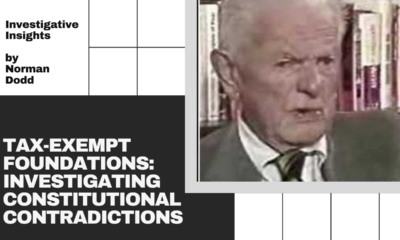
 Constitution3 days ago
Constitution3 days agoCHAPTER 9: Norman Dodd Interview Space Is No Longer the Final Frontier––Reality Is [upcoming release April 2024]
-
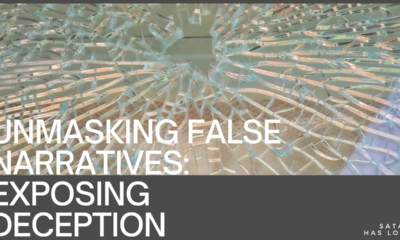
 Clergy2 days ago
Clergy2 days agoWhy Do The American People Let The Corrupt Media & Politicians Set The Propaganda Narrative – Speak On Their Behalf
-
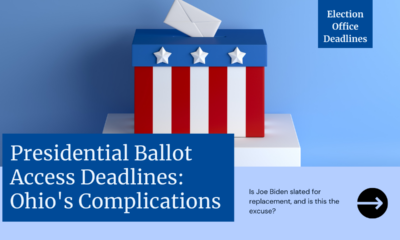
 Executive4 days ago
Executive4 days agoBiden ballot woes continue
-
![CHAPTER 10: Objective Reality Is Required for a Free Society Space Is No Longer the Final Frontier—Reality Is [upcoming release May 2024]](https://cnav.news/wp-content/uploads/2024/04/Objective-reality-v-acceptance-400x240.png)
![CHAPTER 10: Objective Reality Is Required for a Free Society Space Is No Longer the Final Frontier—Reality Is [upcoming release May 2024]](https://cnav.news/wp-content/uploads/2024/04/Objective-reality-v-acceptance-80x80.png) Education2 days ago
Education2 days agoCHAPTER 10: Objective Reality Is Required for a Free Society Space Is No Longer the Final Frontier—Reality Is [upcoming release May 2024]
-

 Entertainment Today3 days ago
Entertainment Today3 days agoCivil War (2024) – an incomplete prediction
-

 Executive5 days ago
Executive5 days agoWhy Fatal Police Shootings Aren’t Declining: Some Uncomfortable Facts
-
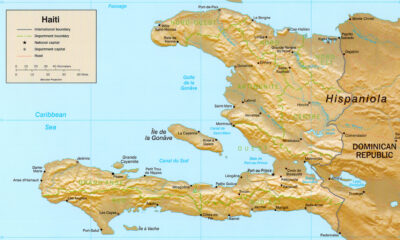
 Civilization5 days ago
Civilization5 days agoPresident Biden Must Not Encourage Illegal Mass Migration From Haiti



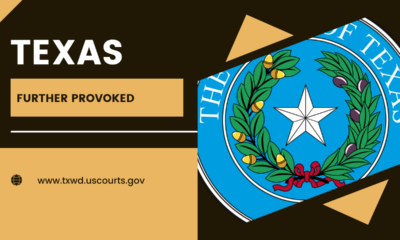

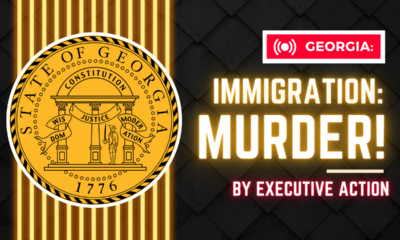





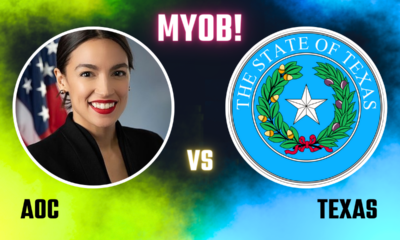

[…] legislative and practical situationTexit – two bills to watchTexit – two opposing voicesTexas, power, and bad moneyTexit – if the vote were the other wayTexit, rewilding, and casus belliTexit debate heats up as […]
[…] legislative and practical situationTexit – two bills to watchTexit – two opposing voicesTexas, power, and bad moneyTexit – if the vote were the other wayTexit, rewilding, and casus belliTexit debate heats up as […]
[…] legislative and practical situationTexit – two bills to watchTexit – two opposing voicesTexas, power, and bad moneyTexit – if the vote were the other wayTexit, rewilding, and casus belliTexit debate heats up as […]